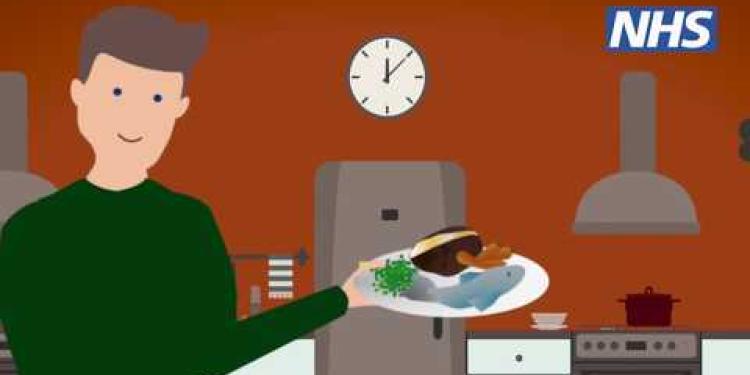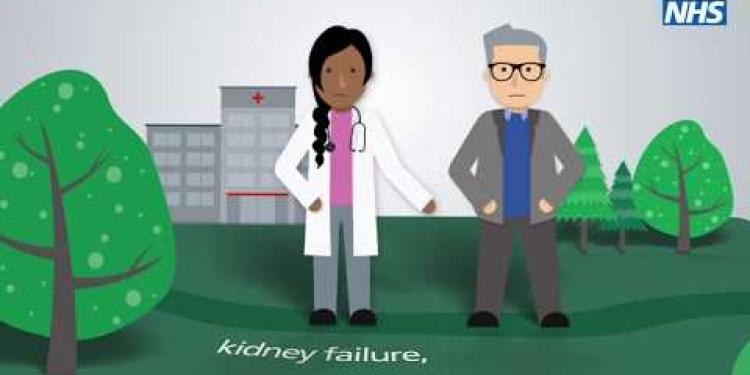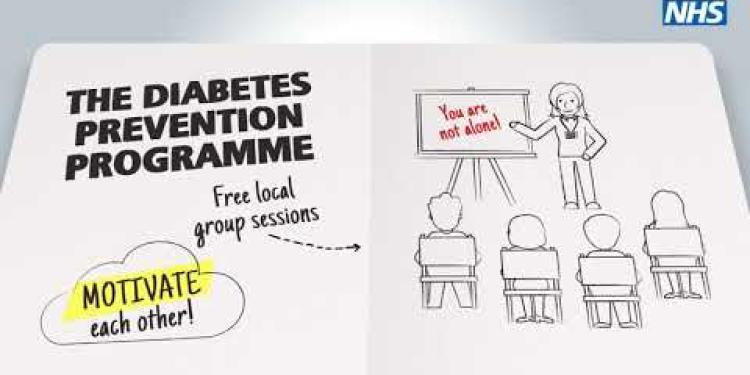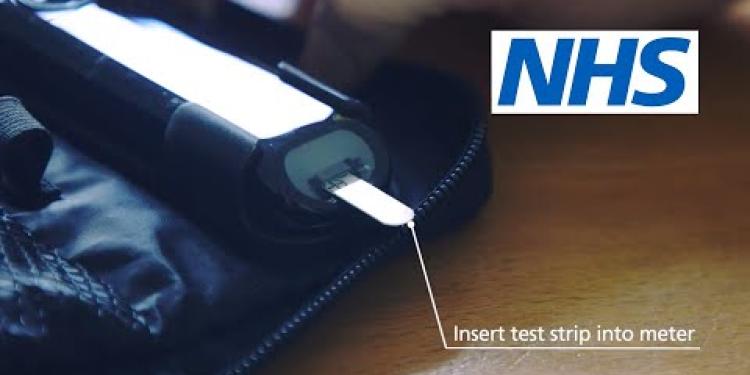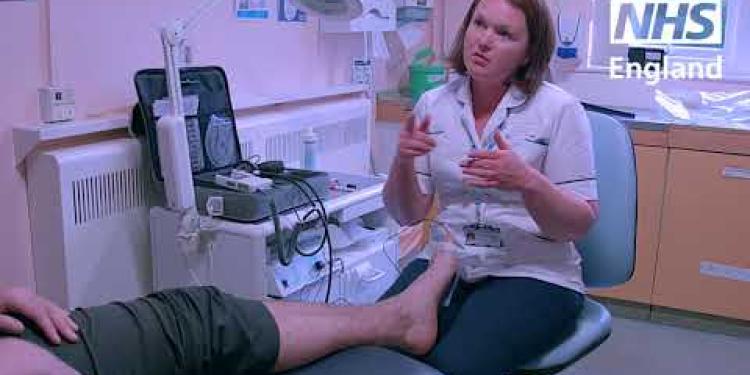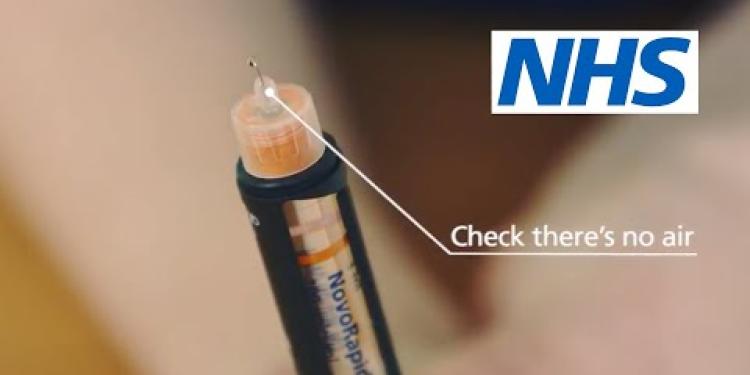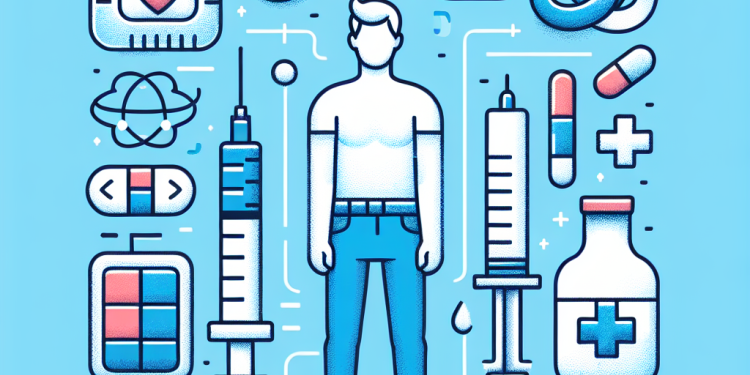Important Information On Using This Service
- Ergsy carefully checks the information in the videos we provide here.
- Videos shown by YouTube after a video has completed have NOT been reviewed by ERGSY.
- To view, click the arrow in the center of the video.
Using Subtitles and Closed Captions
- Most of the videos you find here will have subtitles and/or closed captions available.
- You may need to turn these on and choose your preferred language.
Turn Captions On or Off
- Go to the video you'd like to watch.
- If closed captions (CC) are available, settings will be visible on the bottom right of the video player.
- To turn on captions, click settings.
- To turn off captions, click settings again.
Find A Professional
More Items From Ergsy search
-
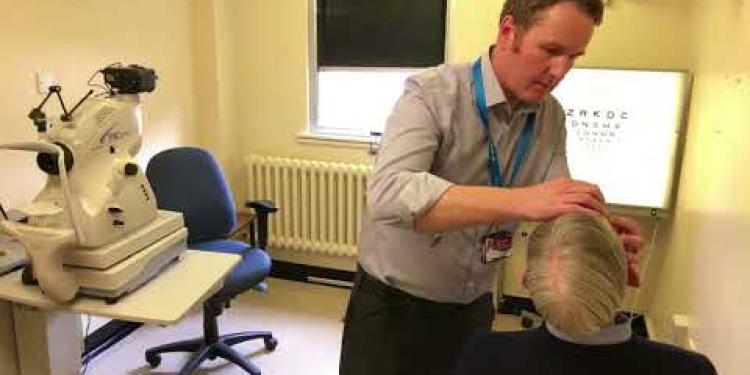
Derbyshire Diabetic Eye Screening - Diabetic Eye Screening
Relevance: 100%
-
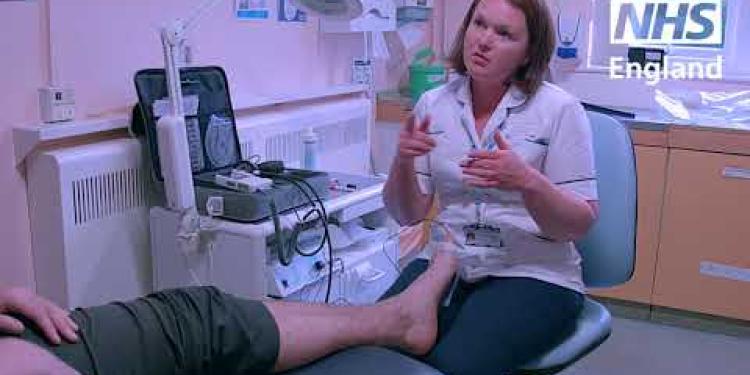
Improving outcomes for people with diabetes
Relevance: 82%
-
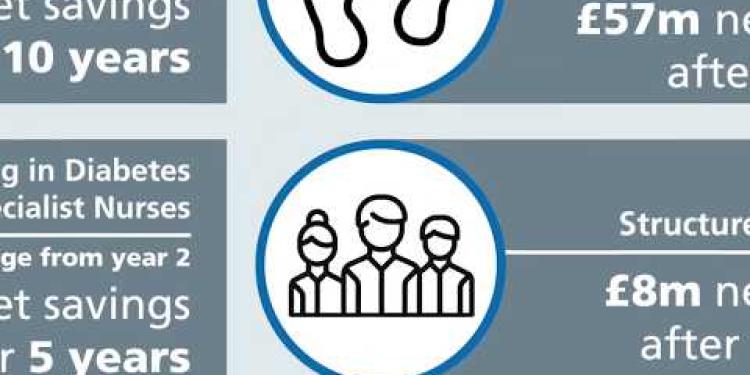
NHS Diabetes Prevention Programme; Preventing Type 2 and improving outcomes for people with diabetes
Relevance: 79%
-
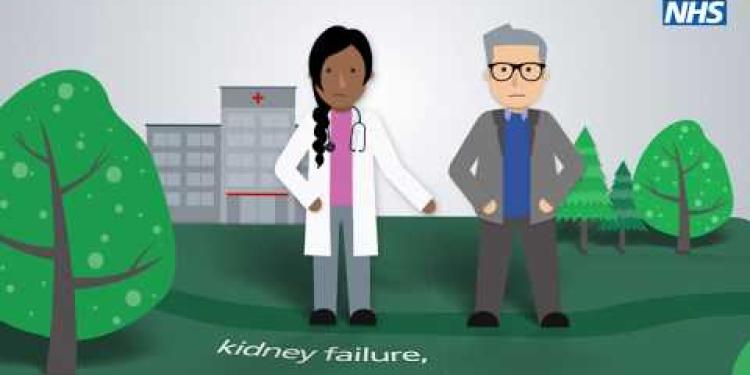
The NHS Diabetes Prevention Programme story
Relevance: 73%
-
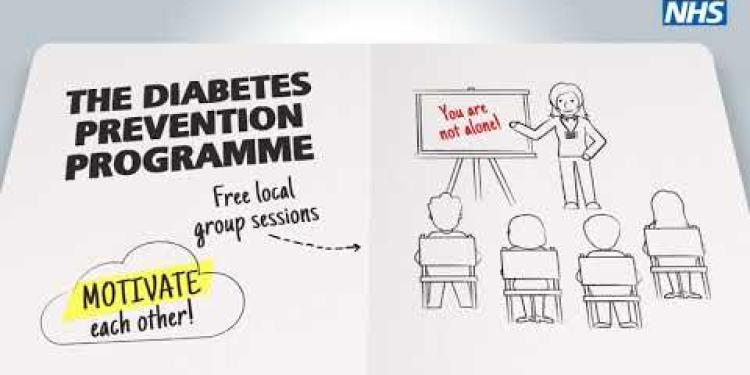
Hansa's story - The NHS Diabetes Prevention Programme
Relevance: 73%
-
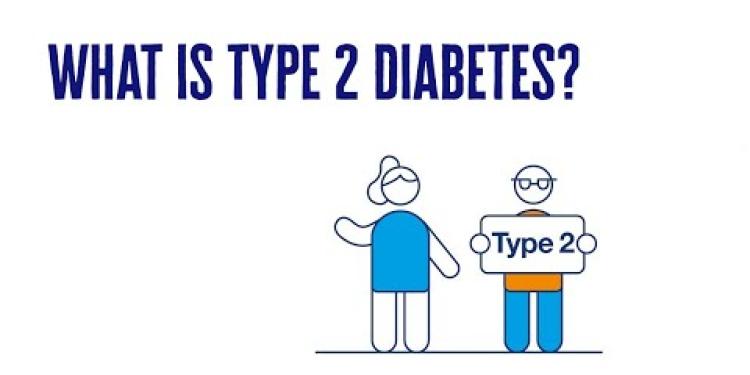
What Is Type 2 Diabetes? | 2 Minute Guide | Diabetes UK
Relevance: 71%
-
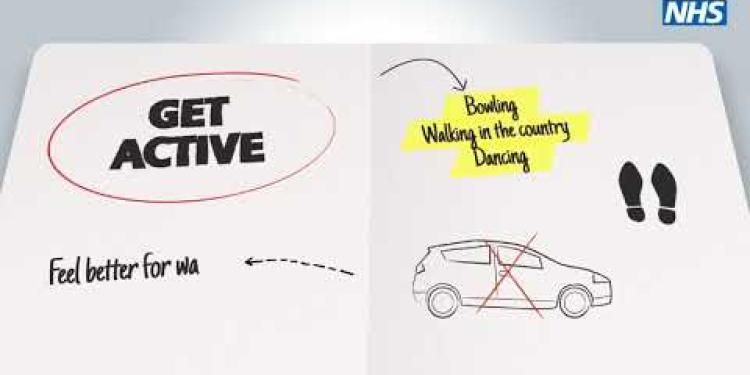
Pam’s story - The NHS Diabetes Prevention Programme
Relevance: 68%
-
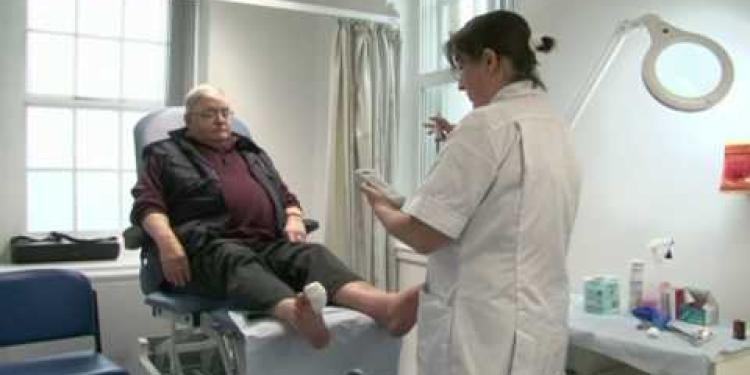
Diabetic Foot Conditions Podiatrist
Relevance: 68%
-
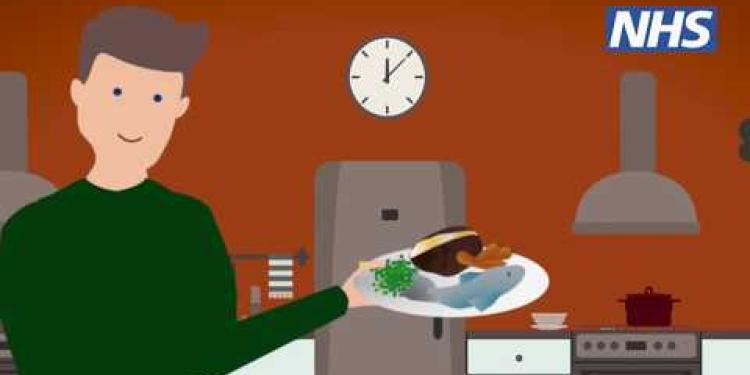
Tom's story (NHS Diabetes Prevention Programme)
Relevance: 64%
-

Type 1 Diabetes supporting adults to manage Type 1 diabetes
Relevance: 62%
-
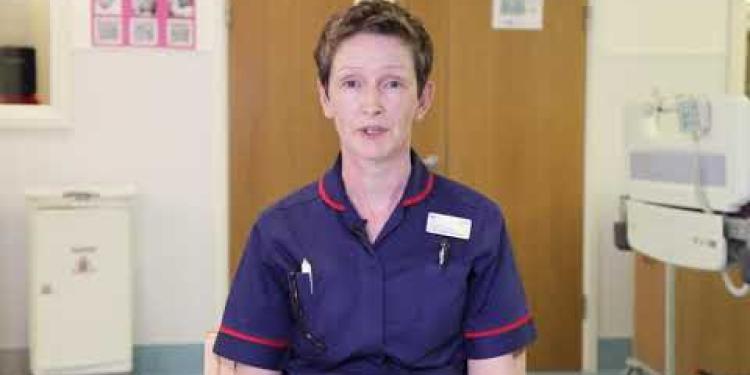
Gestational Diabetes during pregnancy
Relevance: 61%
-
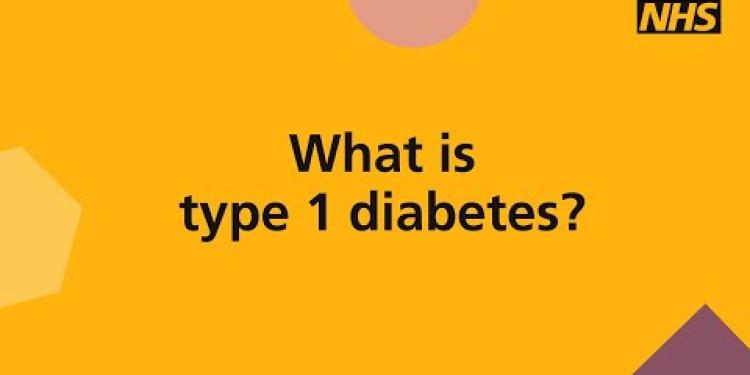
What is type 1 diabetes?
Relevance: 60%
-
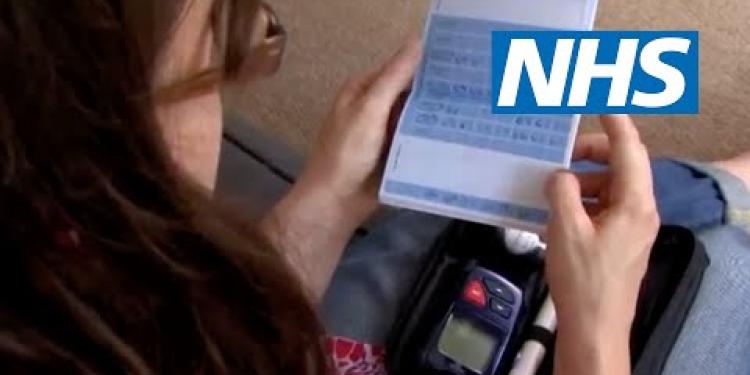
Gestational diabetes | NHS
Relevance: 60%
-

Diabetes Eye Screening
Relevance: 59%
-
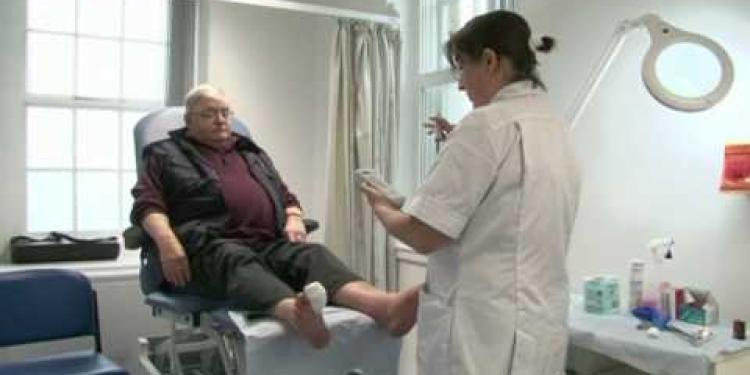
Diabetes Care - Preventing Amputations
Relevance: 55%
-
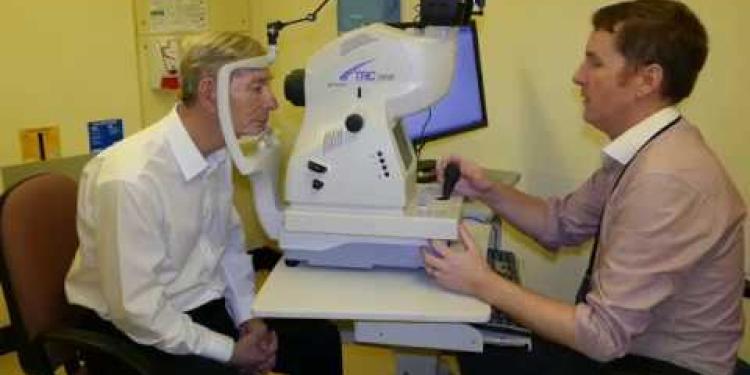
Derbyshire Diabetic Eye Screening - Your Screening Appointment
Relevance: 54%
-

Sarah and Glinys Managing Diabetes into remission Jan2019
Relevance: 51%
-
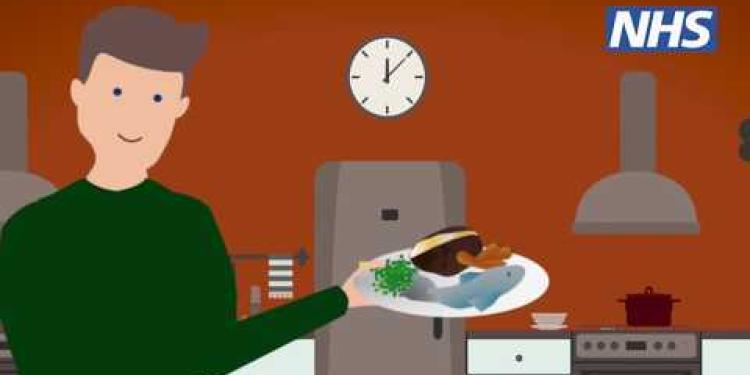
Tom's story (NHS Diabetes Prevention Programme)
Relevance: 50%
-

Preventative Care: What Your Family Needs
Relevance: 45%
-
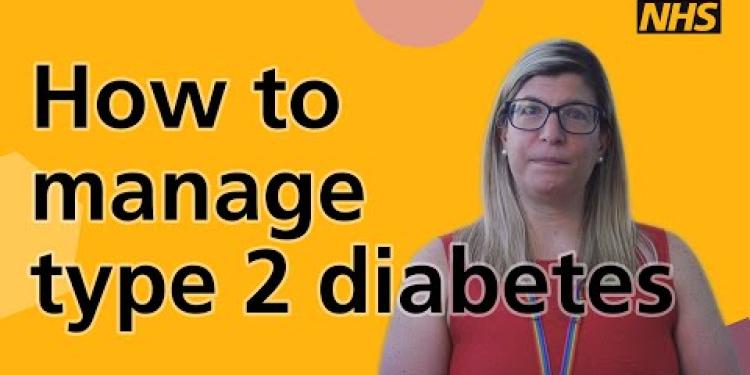
How to manage type 2 diabetes
Relevance: 45%
-
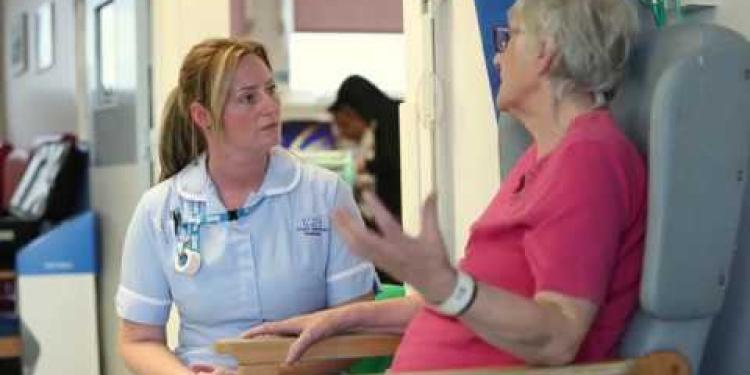
Fallsafe - Put the patient first. Preventing falls in Hospital.
Relevance: 44%
-
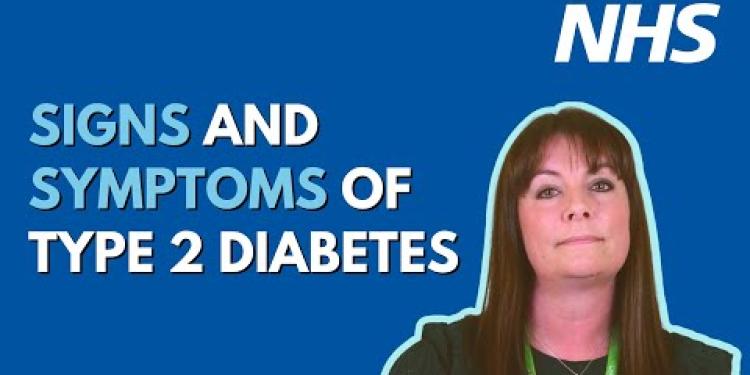
Type 2 diabetes - common signs and symptoms UHL NHS Trust
Relevance: 43%
-
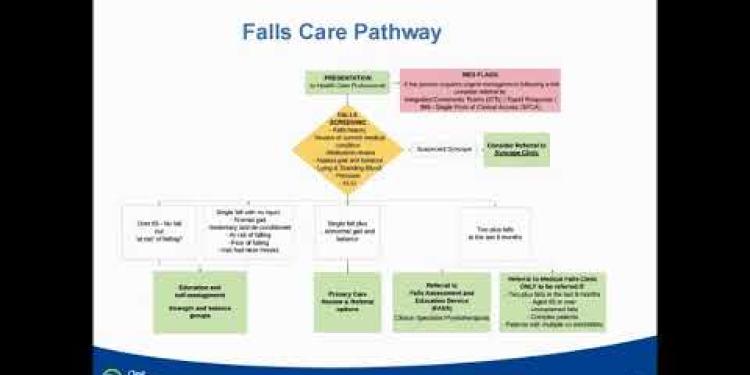
Falls Prevention Podcast
Relevance: 41%
-
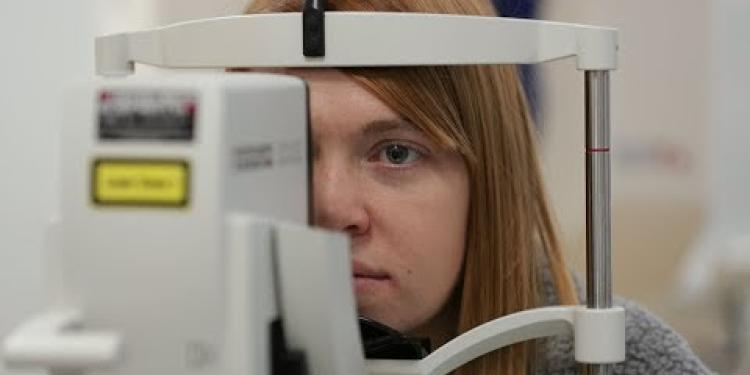
Patient voices in type one diabetes - I would have done things differently.
Relevance: 40%
-
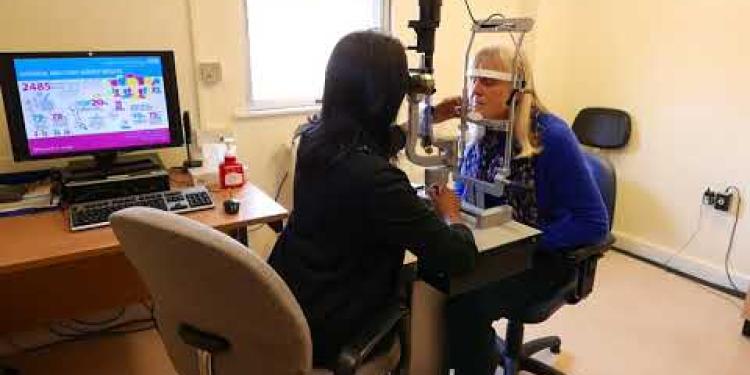
Derbyshire Diabetic Eye Screening - Assessment Clinic Appointment
Relevance: 40%
-

North Yorkshire Diabetic Eye Screening Programme - A day in the life
Relevance: 40%
-

How can obesity be prevented?
Relevance: 38%
-
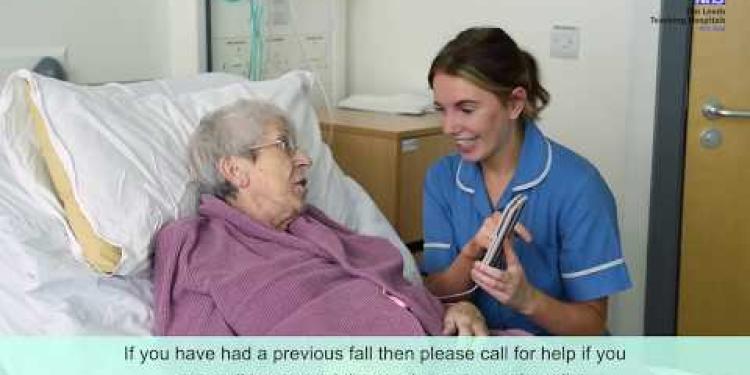
Falls Prevention video for patients attending hospital
Relevance: 35%
-

Pressure ulcer prevention: A guide for patients, carers and healthcare professionals
Relevance: 32%
-

Falls and Falls Prevention
Relevance: 31%
-
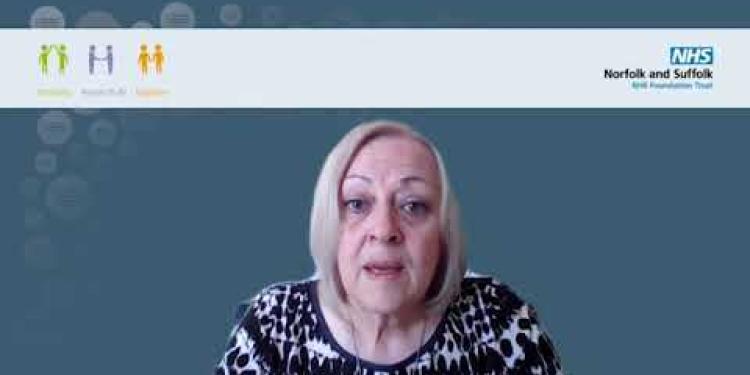
Suicide and Self Harm Prevention Strategy 2023-28
Relevance: 30%
-

SLaM's Suicide Prevention, Learning and Support Strategy
Relevance: 28%
-

NHS Looking after your feet - Podiatrist https://youtu.be/8J1v6K21ykc
Relevance: 26%
-
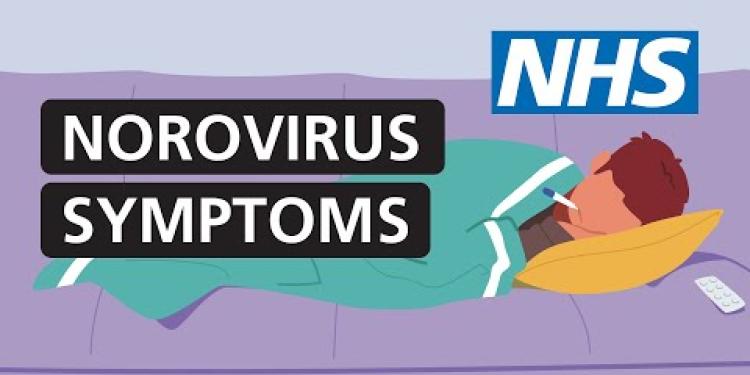
What is norovirus? (Diarrhoea and vomiting bug) | NHS
Relevance: 25%
-

How important is physical activity in preventing obesity?
Relevance: 25%
-

NHS Ayrshire and CVO East Ayrshire - ‘Feet First – Podiatry Services in East Ayrshire’
Relevance: 24%
-
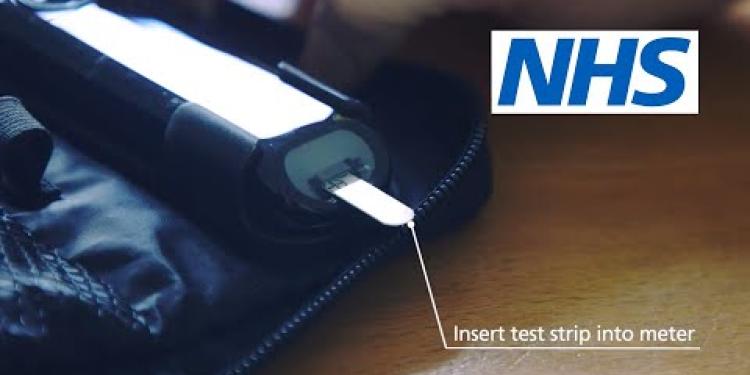
Diabetes: How to check your blood glucose level | NHS
Relevance: 24%
-

Can nettle rash be prevented?
Relevance: 23%
-

Can Alzheimer's disease be prevented?
Relevance: 23%
-

Health Screenings You Should Know About
Relevance: 22%
Pam's Story - The NHS Diabetes Prevention Programme
Introduction to Pam's Journey
Pam is a resident of the United Kingdom who was at high risk of developing type 2 diabetes. Thanks to the NHS Diabetes Prevention Programme (NHS DPP), she managed to significantly reduce her risk and adopt a healthier lifestyle.
Understanding the NHS Diabetes Prevention Programme
The NHS Diabetes Prevention Programme is an initiative aimed at preventing type 2 diabetes in individuals who are at high risk. It combines lifestyle interventions such as diet, physical activity, and weight management to help participants make better health choices.
Pam's Initial Risk Factors
Before joining the programme, Pam had several risk factors, including a family history of diabetes, being overweight, and having a sedentary lifestyle. Her GP recommended the NHS DPP as a preventive measure.
The Programme's Structure and Support
Once enrolled, Pam received personalized support, which included regular one-on-one sessions with a health coach, group meetings, and educational resources. The programme helped her understand the importance of a balanced diet and regular exercise.
Pam's Progress and Achievements
Over the course of a year, Pam made substantial changes to her lifestyle. She lost weight, started a regular exercise routine, and made significant dietary adjustments. Her blood sugar levels dropped to a normal range, and she greatly reduced her risk of developing type 2 diabetes.
Impact on Pam's Life
Participating in the NHS DPP had a profound impact on Pam’s life. She not only improved her health but also felt more empowered and capable of making healthier choices. Pam's story is a testament to the effectiveness of the programme in preventing diabetes and improving quality of life.
Conclusion and Encouragement
Pam's success illustrates the potential benefits of the NHS Diabetes Prevention Programme for people at risk of type 2 diabetes. If you or someone you know is at high risk, consider speaking to your GP about enrolling in the programme.
Pam's Story - The NHS Diabetes Prevention Programme
Introduction to Pam's Journey
Pam lives in the UK. She was at high risk of getting type 2 diabetes. With help from the NHS Diabetes Prevention Programme, she lowered her risk and now lives healthier.
Understanding the NHS Diabetes Prevention Programme
This programme helps stop people from getting type 2 diabetes. It teaches about healthy eating, exercise, and watching your weight. This helps people make better choices for their health.
Pam's Initial Risk Factors
Before the programme, Pam had some risk factors. Her family had diabetes, she was overweight, and she did not move around a lot. Her doctor suggested the NHS DPP to help her.
The Programme's Structure and Support
In the programme, Pam got personal help. This included meetings with a health coach, group talks, and materials to learn from. She learned why eating balanced meals and exercising is important.
Pam's Progress and Achievements
After one year, Pam changed her lifestyle. She lost weight, started to exercise regularly, and ate better. Her blood sugar levels became normal, and she reduced her risk of diabetes.
Impact on Pam's Life
Joining the NHS DPP changed Pam's life a lot. She is healthier, feels stronger, and makes better health choices. Pam's story shows how good the programme is at stopping diabetes and improving life.
Conclusion and Encouragement
Pam’s story shows the NHS Diabetes Prevention Programme can really help people who might get type 2 diabetes. If you or someone you know might be at risk, talk to your doctor about the programme.
Frequently Asked Questions
What is Pam's story about?
Pam’s story is about her journey with the NHS Diabetes Prevention Programme, where she explains how the programme helped her prevent Type 2 diabetes through lifestyle changes.
What is the NHS Diabetes Prevention Programme?
The NHS Diabetes Prevention Programme is a free initiative aimed at helping individuals at high risk of Type 2 diabetes make lifestyle changes to improve their health and avoid developing the condition.
How did Pam get involved with the programme?
Pam was referred to the NHS Diabetes Prevention Programme by her GP after being identified as at risk of developing Type 2 diabetes.
What kind of support did Pam receive through the programme?
Pam received support including educational sessions, personalized advice on diet and exercise, and regular check-ins to monitor her progress.
Did Pam have to pay for the programme?
No, the NHS Diabetes Prevention Programme is a free service provided by the NHS.
What lifestyle changes did Pam make?
Pam made several changes including adopting a healthier diet, increasing her physical activity, and monitoring her weight and blood sugar levels regularly.
How has Pam benefited from the programme?
Pam has successfully reduced her risk of developing Type 2 diabetes, improved her overall health, and gained a better understanding of nutrition and exercise.
Who is eligible for the NHS Diabetes Prevention Programme?
Individuals who are identified as at risk of developing Type 2 diabetes, usually through a blood test or a GP assessment, are eligible for the programme.
How can someone get referred to the programme?
A GP or healthcare professional can refer someone to the NHS Diabetes Prevention Programme if they are found to be at high risk of developing Type 2 diabetes.
What are the key components of the programme?
The key components include educational workshops, one-on-one support, and regular health monitoring, all aimed at encouraging participants to adopt healthier lifestyles.
Is the programme available nationwide?
Yes, the NHS Diabetes Prevention Programme is available across the United Kingdom.
How long does the programme last?
The duration of the programme can vary, but it typically lasts for around nine months to a year.
What are the signs that someone might be at risk of Type 2 diabetes?
Signs include being overweight, having high blood sugar levels, a family history of diabetes, and leading a sedentary lifestyle.
What should someone do if they think they are at risk?
If someone thinks they are at risk, they should consult their GP or healthcare professional for an assessment and potential referral to the programme.
Are there any online resources available for more information?
Yes, the NHS website provides comprehensive information about the Diabetes Prevention Programme and additional resources for managing diabetes risk.
What is Pam’s story?
This is Pam’s story. Pam joined a program called the NHS Diabetes Prevention Programme. She talks about how this program helped her. It helped her stop Type 2 diabetes by changing her lifestyle.
What is the NHS Diabetes Prevention Programme?
The NHS Diabetes Prevention Programme is a program to help stop people from getting diabetes. They teach people how to eat healthy, stay active, and keep a healthy weight. This helps to lower the chance of getting diabetes.
If you find reading hard, try to:
- Use tools that read the text out loud.
- Ask someone to explain it to you.
- Break the information into small parts.
The NHS Diabetes Prevention Programme is a free plan. It helps people who might get Type 2 diabetes. It shows them how to live healthier and stop diabetes from happening.
How did Pam join the program?
Try using pictures or videos to help understand.
Ask someone to help read if you need it.
Pam went to her doctor. The doctor said Pam might get Type 2 diabetes. So, the doctor sent Pam to a special health program to help her stay healthy.
How did the program help Pam?
Pam got help to learn new things. She had lessons. She got advice on what to eat and how to exercise. Someone checked on her often to see how she was doing.
Did Pam need to pay money for the program?
No, the NHS Diabetes Prevention Programme is free. You do not have to pay. The NHS gives this service to help people.
For more help, you can:
- Ask a friend to read with you.
- Use a ruler or your finger to follow the words.
- Listen to an audio version if it's available.
What changes did Pam make in her life?
Pam made some changes to feel better. She started eating healthy food. She moved her body more by doing exercise. She also checked her weight and blood sugar often to stay healthy.
What good things has Pam got from the program?
Pam has done a great job! She has made it less likely for her to get Type 2 diabetes. She is healthier now. She also knows more about healthy food and exercise.
Who can join the NHS Diabetes Prevention Programme?
Let's find out who can take part in the NHS Diabetes Prevention Programme! Here are some helpful tips to make reading this easier:
- Read slowly and take your time.
- Use a ruler or your finger to keep your place.
- Ask someone to read with you if you want help.
If you have questions, ask a doctor or nurse. They are there to help you. Now, let's learn about who can join the programme!
People who might get Type 2 diabetes can join the program. A doctor or a special blood test can tell if you are at risk.
How can someone join the program?
Ask a doctor: A doctor can help you join the program.
Talk to a teacher: A teacher might know about the program and can help you join.
Ask a friend or family: Sometimes people we know can help us learn about programs.
Use a computer: You can find information about programs online.
Ask for help: It is okay to ask if you don't understand.
A doctor or healthcare worker can help someone join the NHS Diabetes Prevention Programme. This is for people who might get Type 2 diabetes.
What are the main parts of the program?
The main parts are learning classes, personal help, and regular health checks. These aim to help people live healthier lives.
Can I get the programme everywhere in the country?
- Use simple words. - Read slowly to understand better. - Ask a helper if you need more information.Yes, you can find the NHS Diabetes Prevention Programme all over the United Kingdom.
How long is the programme?
The programme goes on for a certain time. Try using a timer or calendar to help you remember the time. You can also ask someone if you need help.
The programme usually goes on for about nine months to a year. This means it can last through most of the school year.
How can you tell if someone might get Type 2 diabetes?
Signs of having a problem include:
- Weighing too much
- Having high sugar in your blood
- Having family members with diabetes
- Sitting a lot and not moving much
What should you do if you think you are in danger?
If you feel worried or in danger, here are some steps you can take:
- Talk to a trusted adult, like a parent, teacher, or family member.
- Tell them how you feel and why you are scared.
- Ask for help. It's okay to ask for support when you need it.
- Stay in safe places. Go where you feel secure.
- Keep a phone or way to contact someone in case of emergency.
- Remember, you are not alone. People are there to help you.
You can also use tools like a stress ball or breathing exercises to feel calm.
If you think you might be at risk, talk to your doctor or a healthcare expert. They can check you and tell you if you need to join a special programme for help.
Can I find information online?
Yes, the NHS website has lots of helpful information about the Diabetes Prevention Programme. They also have other resources to help you manage your risk of getting diabetes.
Useful Links
Useful links from: NHS Diabetes Prevention Programme; Preventing Type 2 and improving outcomes for people with diabetes
- NHS Diabetes Prevention Programme Information about the NHS Diabetes Prevention Programme which aims to identify those at high risk of Type 2 diabetes and help them make lifestyle changes to prevent the condition.
- Diabetes UK - Prevention of Type 2 Diabetes Diabetes UK provides comprehensive information on preventing Type 2 diabetes through lifestyle changes, risk factors, and helpful tips to maintain healthy habits.
- NHS - Type 2 Diabetes Risk Assessment An online tool provided by the NHS to assess your risk of developing Type 2 diabetes. The tool offers personalized advice and resources based on your risk level.
- NHS Inform - Preventing Type 2 Diabetes NHS Inform offers detailed guidance on how to prevent Type 2 diabetes, including dietary recommendations, physical activity guidelines, and overall lifestyle advice.
Useful links from: Diabetes: How to check your blood glucose level | NHS
- NHS - Blood sugar level testing Comprehensive NHS guide on the importance of blood glucose testing, types of tests, and how to perform them.
- Diabetes UK - Checking your blood glucose Diabetes UK provides detailed information on self-monitoring of blood glucose, including tips on how to test effectively.
- NHS - Living with diabetes NHS resource for living with diabetes, featuring advice on managing and monitoring your blood glucose levels.
- JDRF UK - How to monitor blood sugar levels Juvenile Diabetes Research Foundation (JDRF) UK provides guidance on blood glucose monitoring, including explanations of target ranges and monitoring devices.
Useful links from: Improving outcomes for people with diabetes
- NHS Diabetes This NHS page provides comprehensive information about diabetes, including symptoms, treatments, living with diabetes, and prevention strategies. It is an essential resource for understanding how the NHS manages and supports people with diabetes.
- Diabetes UK Diabetes UK is a leading charity dedicated to supporting people with diabetes and funding research into better treatments and potential cures. Their website offers a wealth of resources, including educational content, support groups, and information on managing diabetes.
- NICE - Diabetes in Adults The National Institute for Health and Care Excellence (NICE) provides guidelines on the management and treatment of diabetes in adults. This site is an excellent resource for healthcare professionals seeking evidence-based recommendations and updates related to diabetes care.
- JDRF UK JDRF is a charity focused on type 1 diabetes research, advocacy, and support. Their UK website provides information on ongoing research efforts, fundraisers, and resources for families living with type 1 diabetes.
Useful links from: How to inject insulin
- NHS - How to Take Insulin Official NHS guidance on the proper methods for insulin injection, including preparation, injection techniques, and site rotation.
- Diabetes UK - Injecting Insulin Diabetes UK provides detailed information on insulin injection, including step-by-step instructions, tips for minimizing discomfort, and managing injection sites.
- JDRF UK - Insulin and Needles JDRF UK offers resources and support for insulin injection techniques, including advice on types of insulin and needle selection.
- NHS Inform - Using Insulin NHS Inform provides comprehensive information on using insulin safely, including how to store insulin and handle missed doses.
Useful links from: Tom's story (NHS Diabetes Prevention Programme)
- NHS Diabetes Prevention Programme Learn about the NHS Diabetes Prevention Programme which aims to identify those at high risk and refer them onto a behavior change program to reduce their risk of developing Type 2 diabetes.
- Diabetes UK - NHS Diabetes Prevention Programme Read about the joint initiative between Diabetes UK, NHS England, and Public Health England to prevent Type 2 diabetes through the Diabetes Prevention Programme.
- Diabetes UK - Preventing Type 2 Diabetes Comprehensive guide on how to prevent Type 2 diabetes, including lifestyle changes, managing risk factors, and stories from people like Tom who have benefited from these interventions.
- NHS - Diabetes Prevention: Your Healthier Future Information on how the NHS Diabetes Prevention Programme works, the criteria for participation, and the impact it has had on individuals and communities in the UK.
Useful links from: The NHS Diabetes Prevention Programme story
- NHS - Diabetes Prevention Programme The NHS Diabetes Prevention Programme (NHS DPP) provides support to help people at high risk of Type 2 diabetes to make changes to their lifestyle to reduce their risk.
- Diabetes UK - NHS Diabetes Prevention Programme Diabetes UK offers detailed information about the NHS Diabetes Prevention Programme and how it supports people to reduce their risk of developing Type 2 diabetes.
- Healthier You - NHS Diabetes Prevention Programme Healthier You is the NHS Diabetes Prevention Programme's official site, providing resources and support for those looking to prevent Type 2 diabetes through lifestyle changes.
- British Heart Foundation - Diabetes Prevention The British Heart Foundation offers guidance on preventing Type 2 diabetes as part of maintaining overall cardiovascular health.
Useful links from: Hansa's story - The NHS Diabetes Prevention Programme
- NHS Diabetes Prevention Programme Official NHS page detailing the NHS Diabetes Prevention Programme, which aims to help those at high risk of Type 2 diabetes to lower their risk.
- Diabetes UK - NHS Diabetes Prevention Programme Information provided by Diabetes UK about the NHS Diabetes Prevention Programme, including how it works and who can join.
- Healthier You: NHS Diabetes Prevention Programme A dedicated site for the NHS Diabetes Prevention Programme, providing details on how to assess your risk and steps to prevent Type 2 diabetes.
- NHS Inform - Diabetes Prevention NHS Inform’s comprehensive guide on preventing diabetes, including lifestyle changes and the role of the NHS Diabetes Prevention Programme.
Useful links from: Diabetes: How to inject insulin | NHS
- Diabetes: How to Inject Insulin | NHS Official NHS resource providing detailed guidance on how to inject insulin safely and effectively for diabetes management.
- Diabetes UK: How to Inject Insulin Diabetes UK offers a comprehensive guide on how to inject insulin, including considerations for site selection and technique.
- JDRF: Insulin Injection Tips Juvenile Diabetes Research Foundation (JDRF) provides tips and best practices for insulin injections to help manage type 1 diabetes.
- TREND-UK: Insulin Injection Therapy TREND-UK offers educational resources on insulin injection therapy, including practical advice for healthcare professionals and patients.
More Videos of Interestdiagnosis
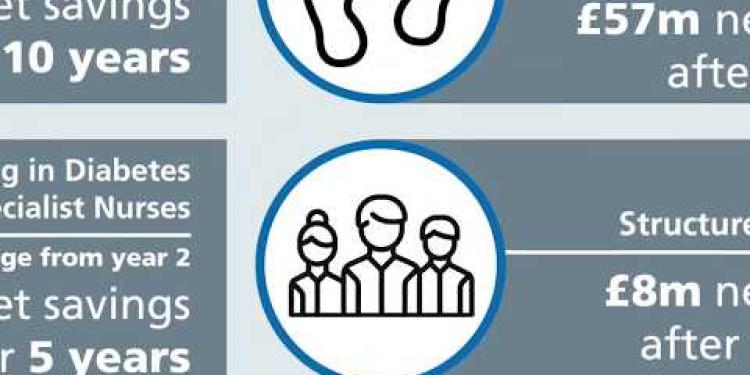
NHS Diabetes Prevention Programme; Preventing Type 2 and improving outcomes for people with diabetes
Have you found an error, or do you have a link or some information you would like to share? Please let us know using the form below.
- Ergsy carfully checks the information in the videos we provide here.
- Videos shown by Youtube after a video has completed, have NOT been reviewed by ERGSY.
- To view, click the arrow in centre of video.
- Most of the videos you find here will have subtitles and/or closed captions available.
- You may need to turn these on, and choose your preferred language.
- Go to the video you'd like to watch.
- If closed captions (CC) are available, settings will be visible on the bottom right of the video player.
- To turn on Captions, click settings .
- To turn off Captions, click settings again.
